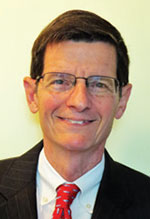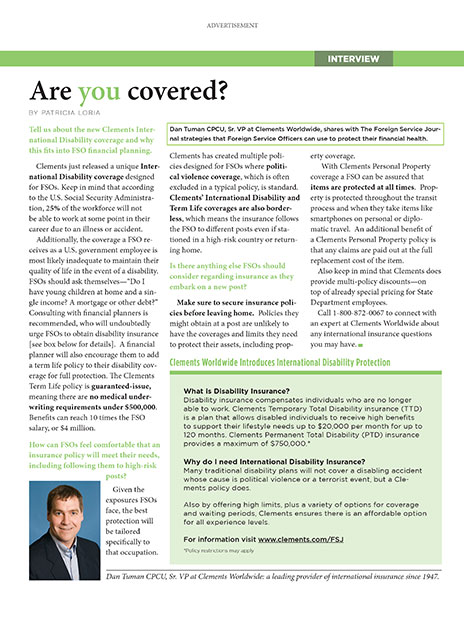Raising Foreign Service Kids
Get to know the nonprofit groups and State Department offices that offer a social safety net for FS youth.
BY JOHN K. NALAND
Growing up in a Foreign Service family presents both benefits and challenges. Benefits include an expanded worldview, heightened interpersonal sensitivity, increased tolerance, multilingualism and the capacity to adjust more easily to changing circumstances. Challenges can include confused cultural identities, feelings of rootlessness, difficulties creating a sense of belonging and, at times, exposure to physical hardship and danger.
Thankfully, Foreign Service youth and their parents do not have to face these challenges alone. Several nonprofit organizations and Department of State offices work hard to maintain a social safety net for our youth.
Sadly, many potential beneficiaries do not take advantage of these valuable resources. Fewer than 10 percent of Foreign Service families belong to any of the nonprofit organizations highlighted below. I hope this column will prompt more parents to utilize the support that their colleagues have put such great effort into making available.
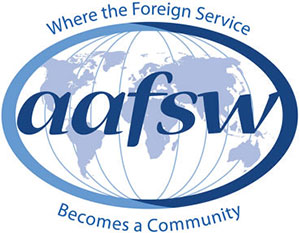
AAFSW–Associates of the American Foreign Service Worldwide. Since 1960, the Associates of the American Foreign Service Worldwide has advocated for the interests of Foreign Service family members. AAFSW—which played a leading role in founding the FSI Transition Center, FLO and FYSF—is best known for its multifaceted support for Foreign Service spouses. However, it also has several programs that serve our youth.
AAFSW’s longstanding Yahoo group, LiveLines, has nearly 5,000 members who use the listserv to discuss family and children’s issues. AAFSW also has Facebook groups for parents of special needs children and for parents of children attending boarding school. The organization has published several books that include helpful tips on raising children abroad, including the popular “Realities of Foreign Service Life” series.
AAFSW has a Washington, D.C.-area playgroup for young children that meets weekly on weekday mornings at parks or homes of members in the Falls Church/Vienna, Virginia, area. It offers three annual scholarships for Foreign Service youth, including current college students. The annual AAFSW Art and Book Fair at Main State includes a section of children’s books.
For more information, visit www.aafsw.org. Dues are $40 per year.

Foreign Service Institute Transition Center. Since 1977, the Foreign Service Institute’s Overseas Briefing Center has compiled information on foreign and domestic postings for U.S. government employees and their family members. That effort includes a growing library of “Kid Vids” depicting life at post from a child’s perspective; these are submitted by youth age 10 to 18 via an annual contest conducted by OBC in collaboration with the Foreign Service Youth Foundation.
In 2000, OBC merged with the Career Transition Center under the umbrella of the Transition Center. FSI/TC offers a variety of short courses focusing on unique aspects of life in the Foreign Service. In addition to courses geared toward the concerns of spouses and partners, it offers three that are open to children from grades two to 12. Ranging from a half-day to two days in length, they are: “Going Overseas for Families,” “Going Overseas: Logistics for Children” and “Young Diplomats Overseas Preparation.” FSI/TC also has two kid-focused courses for adults: “Encouraging Resilience in the Foreign Service Child” and “Raising Bilingual Children.”
For more information, visit www.state.gov/m/fsi/tc/index.htm or email FSITCTraining@state.gov.
In addition to courses geared toward the concerns of spouses and partners, the Transition Center offers three that are open to children.
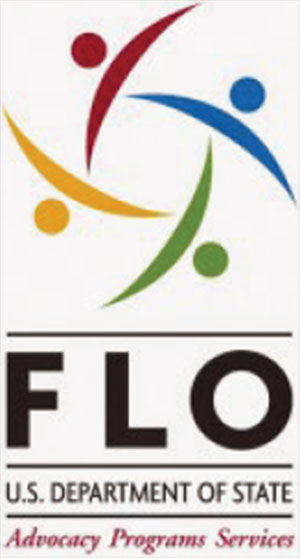
FLO–Family Liaison Office. Since 1978, the Family Liaison Office has worked to improve the quality of life of direct-hire U.S. government employees and their families serving overseas by providing advocacy, programs, service and support.
FLO’s Education and Youth Office gives guidance and makes referrals to assist families in making informed decisions about their children’s education. They have information on boarding schools, Washington, D.C.-area schools, special needs, homeschooling and college preparedness. They also assist Foreign Service families dealing with child care, gifted and talented resources, allowances, adult education, summer camps, and transition and re-entry planning.
The Unaccompanied Tours program provides resources to assist the families of employees serving on an unaccompanied tour. The program sponsors events—such as a “Stress Resilience for Kids” webinar—that are open to employees and families at any post.
FLO’s 32-page booklet, Bouncing Back (posted on FLO’s website), contains guidance on transition and re-entry planning for parents of Foreign Service youth.
For more information, visit www.state.gov/m/dghr/flo/ or email FLO@state.gov.
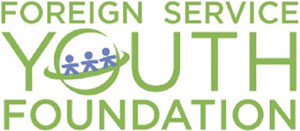
FSYF–Foreign Service Youth Foundation. Since 1989, the Foreign Service Youth Foundation has helped our young people embrace the adventure of an internationally mobile childhood by encouraging resilience and fostering camaraderie. Participants in FSYF activities make new friends who have also experienced changing environments as they transitioned from post to post. Adult volunteers, including young adults who grew up in the Foreign Service, who organize FSYF activities keep alive this important social safety net.
FSYF’s worldwide programs include: a Foreign Service youth-written newsletter, Here, There & Everywhere; a parent newsletter, Around The World; four annual contests (art, essay, community service and KidVid); and two academic merit scholarships for college-bound seniors.
The foundation has published four books to help Foreign Service youth deal with the opportunities and challenges of growing up overseas (including The Kids’ Guide to Living Abroad). In addition, FSYF’s website links to a variety of resources. See, for example, www.fsyf.org/Resilience and www.fsyf.org/Websites.
FSYF also organizes numerous events in the Washington, D.C., area. These include: re-entry seminars for high school and middle school students in the late summer, a college admissions workshop, teen and tween game nights at Oakwood Apartments and a September welcome-back picnic usually attended by more than 100 Foreign Service family members.
In addition, FSYF’s Youth Evacuation Program assists FLO and AAFSW in providing emergency support to Foreign Service families who are evacuated from overseas.
For more information, visit www.fsyf.org or email fsyf@fsyf.org. Dues are $20 per year. Also, FSYF is a tax-exempt charity, and you may want to consider a donation (CFC #39436).
MED’s Child and Family Program supports employees whose children require mental health treatment or special educational consideration overseas.
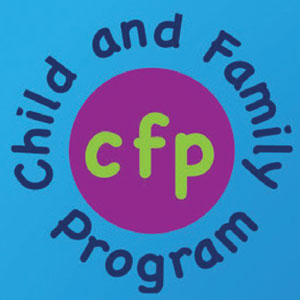
MED–State Department Office of Medical Services. The Department of State’s Employee Consultation Service, part of the Office of Medical Services, offers free, confidential referrals to professional clinical social workers for State employees and their family members. These counselors can assist parents and children with family problems, blended family concerns, school adjustment problems, re-entry concerns and other emotional problems. For more information, email MEDECS@state.gov or call (703) 812-2257.
MED’s Child and Family Program supports employees whose children require mental health treatment or special educational consideration overseas. Services include certifying eligibility for the special needs educational allowance. For more information, visit http://med.m.state.sbu/mhs/cfp/default.aspx on the department’s intranet or email MEDCFP@state.gov.
The bureau’s Alcohol and Drug Awareness Program covers education, consultation and treatment referrals for employees and family members dealing with alcohol or drug issues. The program also publishes guidance on helping kids stay drug-free. For more information, visit http://med.m.state.sbu/mhs/adap/default.aspx (intranet) or call (202) 663-1904.
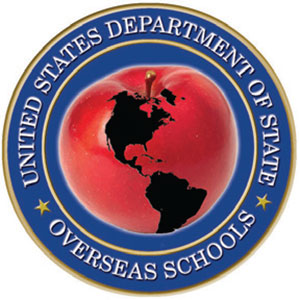
State Department Office of Overseas Schools. The State Department’s Office of Overseas Schools, part of the Bureau of Administration, promotes quality K-12 education at posts worldwide. Regional education officers are available to discuss all aspects of educating a child while posted abroad, including special needs and gifted education. The office works with the schools it assists to design appropriate curricula, train high school counselors, support professional development and prepare school directors to work with the embassy/consulate parents they serve. It also makes available professional/educational consultants to schools.
Parents are encouraged to contact the office with any concerns regarding their child and their education; you may call (202) 261-8200 or email OverseasSchools@state.gov. For more information, visit www.state.gov/m/a/os/.
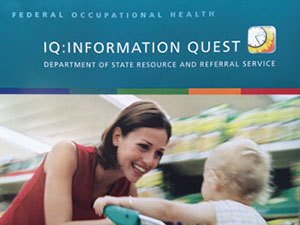
State Department Bureau of Human Resources. The Office of Employee Relations, part of State’s Bureau of Human Resources, sponsors an Information Quest service. This offers 24/7 counseling, education and referral services for domestic programs, providers and resources to manage personal and professional responsibilities. The InfoQuest website includes a large collection of general guidance regarding raising children. The service is open to all Department of State employees. For more information, search “Information Quest” on the department’s intranet.
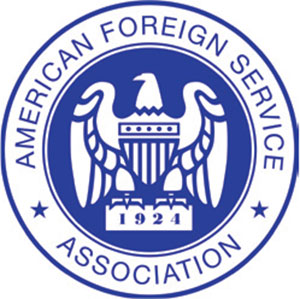
AFSA. Last, but certainly not least, AFSA’s flagship publication, The Foreign Service Journal, has published dozens of articles over the years dealing with raising and educating Foreign Service kids. (See a listing at www.afsa.org/educationarticles.) AFSA also offers need-based and merit scholarships that last year supported 85 college-bound Foreign Service students with awards and scholarships totaling nearly $260,000. For more information, visit www.afsa.org/scholar. Consider a contribution to AFSA’s scholarship fund (CFC#11759).
The nonprofit organizations and Department of State offices that I have just described work hard to assist Foreign Service youth in their global upbringing. My own children benefited greatly from a number of those programs over the years. Even though my recent retirement means that they no longer need these resources, I volunteered as president of the Foreign Service Youth Foundation to help ensure the continuation of this social safety net for future generations. Parents of Foreign Service kids can support that goal by utilizing the programs and services described in this column and by supporting the organizations that provide them.
Read More...
- AAFSW—Associates of the American Foreign Service Worldwide
- Foreign Service Institute Transition Center
- FLO—Family Liaison Office
- FSYF—Foreign Service Youth Foundation
- MED—State Department Office of Medical Services
- State Department Office of Overseas Schools
- State Department Bureau of Human Resources
- AFSA

